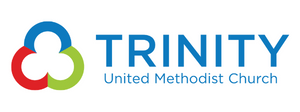2.23.25 CREATING THE COVENANT: Foolishness of the Cross
1 Corinthians 1:18-25, 1 Corinthians 12:27-31
Episode 7: The Logic of the Cross
Daily Reading:
Day 1: 1 Corinthians 1-4
Day 2: 1 Corinthians 7-10
Day 3: 1 Corinthians 11-14
Day 4: 1 Corinthians 15, 2 Corinthians 1:1-11, 4-6
Day 5: 1 Corinthians 16, 2 Corinthians 7-9
Day 6: 2 Corinthians 4:7-12
Day 7: Group Meeting Experience on: 1 Corinthians 12:4-8
Who are the people we honor most in our society? Are they the wealthy? The busy? The ones who dominate meetings, always look polished, or bask in fame and influence? In many ways, our society reflects the values of the 1st-century Roman Empire, where honor was the ultimate currency. In that world, people chased honor through wealth, power, public recognition, and social status, while shame was something to be avoided at all costs.
This cultural obsession with honor shaped life in Corinth, a bustling and competitive city where status was everything. Paul’s letters to the Corinthians directly confront this value system, urging the church to rethink what it means to live in a gospel-shaped community. He calls them—and us—to measure worth not by outward appearances or societal achievements but by the radical, upside-down values of God’s kingdom.
Corinth was a fascinating place to be a Christian in the first century. Located forty miles southwest of Athens, the city was strategically important to Rome, with natural defenses and a spring-fed water supply. Its position on the Corinthian Gulf made it a key shipping hub, allowing merchants to bypass the stormy Mediterranean. This constant flow of people created a vibrant, diverse city filled with religious, cultural, and social variety.
Despite its wealth, Corinth lacked deep cultural roots, often described by scholars as having a "superficial cultural life." The city was known for its nouveau riche population, moral looseness, and rampant social inequality. Temples to every major god—and even a temple dedicated to all the gods—were scattered throughout the city. Corinth’s reputation for immorality earned it the nickname “Sin City,” making it a challenging yet fertile ground for the gospel.
The early Christian community in Corinth was a microcosm of the city’s diversity and division. Most believers were poor, while a small but influential group of wealthy Christians flaunted their status. This tension played out in various ways, from conflicts over food sacrificed to idols to wealthy believers feasting while the poor went hungry during church gatherings. Paul’s letters challenge these divisions and call the Corinthians to unity in Christ.
In 1 Corinthians 1:27-28, Paul writes:
"But God chose what is foolish in the world to shame the wise; God chose what is weak in the world to shame the strong; God chose what is low and despised in the world, even things that are not, to bring to nothing things that are."
This was a revolutionary message in a culture fixated on status and power. Paul reminds the Corinthians that their worth is not found in wealth or societal standing but in their identity as God’s people. He weaves them into the story of God’s covenant, showing that they, too, are part of God’s redemptive plan. For Gentile believers unfamiliar with Jewish scripture, Paul introduces key concepts like covenant, Sabbath, and circumcision, helping them understand their place in the unfolding story of salvation.
The struggles of Corinth mirror our own world in many ways. Like Corinth, our society is divided—between rich and poor, powerful and powerless, celebrated and overlooked. The gospel invites us to step out of this cycle of honor and shame and into a new identity rooted in Christ.
Paul captures this vision of unity in 1 Corinthians 12:12-13:
"For just as the body is one and has many members, and all the members of the body, though many, are one body, so it is with Christ. For in one Spirit we were all baptized into one body—Jews or Greeks, slaves or free—and all were made to drink of one Spirit."
The Corinthian church struggled to live out this unity, but Paul’s message is clear: in Christ, our differences do not divide us—they enrich us. When we honor one another as bearers of God’s image, we embody the countercultural values of God’s kingdom—a kingdom where the poor are blessed, the last are first, and honor is found in serving others.
So, who do we honor most? And how can we, as followers of Jesus, redefine honor in a way that reflects the heart of the gospel?
Discussion Questions:
- In what ways does our society mirror Corinth’s obsession with honor, status, and wealth? How does this influence how we view ourselves and others?
- How does Paul’s message about God choosing the “foolish” and “weak” challenge the way we evaluate success and importance in our personal lives and church communities?
- What practical steps can we take to reflect the gospel’s values in how we honor and serve others, particularly those who may feel overlooked or marginalized?
